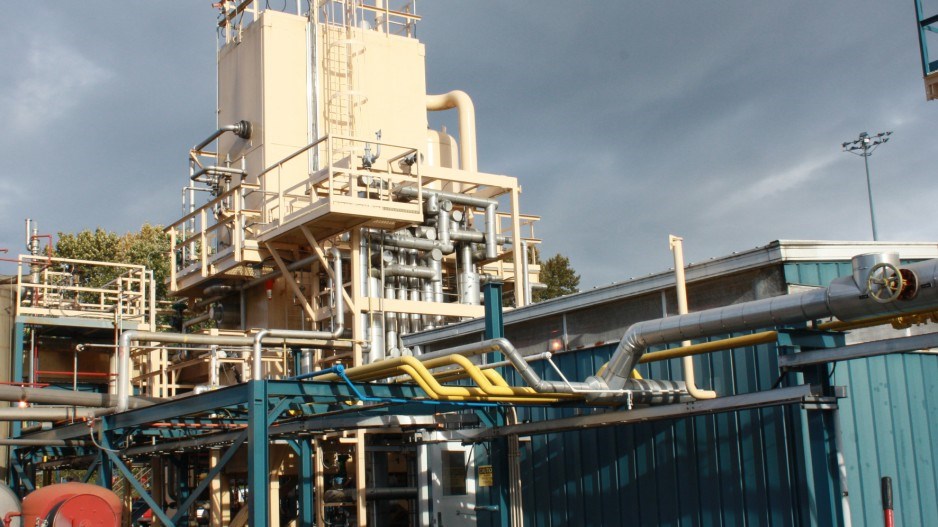An estimated 4,000 heavy equipment operators will be needed in B.C.’s northeast region if major liquefied natural gas (LNG) projects in the province proceed.
Tapping the human resource potential of First Nations communities in B.C. to provide some of those workers is one of the latest goals of the Aboriginal Skills Group.
The group works with industry and First Nations to develop apprenticeship training programs in construction, heavy equipment operating, independent power production and other trade sectors.
In partnership with FortisBC, the group recently graduated 10 First Nations through the first of what is expected to be a series of training programs being designed to equip B.C. aboriginal workers with the skills they will need to take advantage of an LNG job boom. The eight-week pre-apprenticeship foundational skills program that FortisBC funded with a $75,000 grant is designed to prepare participants for apprenticeship programs for the trades that will be in demand in an LNG industry.
“There’s a huge demand for skilled trades,” said Aboriginal Skills Group executive director Linden Pinay.
FortisBC already has an LNG plant on Tilbury Island and is investing $400 million in its expansion.
Unlike the larger LNG projects planned for Kitimat and Prince Rupert, the Tilbury Island plant is not for LNG exports.
The LNG produced there is mainly for backup of FortisBC’s residential natural gas supply, although the company is also developing a domestic market for its LNG.
Because FortisBC already operates an LNG plant, it can use its facilities to train future plant workers.
“We’ve got the need for people that are familiar with the industry,” said FortisBC aboriginal relations manager Bruce Falstead. “We see the aboriginal community as a good resource for us when it comes to future employees.
“We want to connect with the aboriginal community to a greater degree. We see our relationship with First Nations as a strategic advantage as we go forward.”
Tsawwassen First Nation member Brayden Holtz is one of the 10 participants who recently completed the LNG foundational skills course.
Holtz has worked at various seasonal jobs over the years, including commercial fishing and heavy equipment operating.
“I’m trying to change careers, basically, and get more into green technology,” he said.
He originally planned to take a mechanical engineering course but then learned about the FortisBC LNG training program.
“I really started getting excited about Fortis, as a company, because they’re large and they have many departments, divisions, trades. This course is a great foot in the door for Fortis.”




